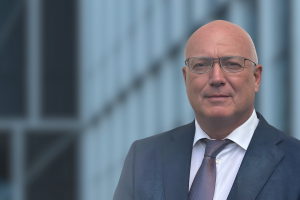Entrepreneurs’ round table: Dealing with the challenges businesses face

TEN Midlands entrepreneurs came together to discuss the challenges facing business at a round table event with EY.
The tone was one of resilience and optimism, but there were a number of shared concerns.
Skills was top of the list, with companies rightfully worried about the quality of the people that were available to bring into their business, both at junior levels and at more senior positions. The ability to think critically and think commercially remains a highly sought-after quality which means the competition for talent is as fierce as ever.
Overshadowing that – as it is overshadowing most debates at the moment – is the potential consequences of the looming EU referendum.
Generally, the mood was ambitious and aspirational. Entrepreneurs know the successful businesses are the ones that can communicate well – internally, to share their vision, and externally, to share their values – and that can embrace change and uncertainty to seize opportunities.
Is Brexit inhibiting your business?
Parts Alliance’s Peter Sephton said: “We aren’t sitting tight because otherwise our business would disappear pretty quickly by those who aren’t sitting tight. Ours is a daily business with 14m transactions a year so we have to be ready for whatever happens.
“We are looking at our stock levels quite carefully. A lot of our product is imported so we are just hedging some of our currencies at the moment. It isn’t inhibiting our business but we are cautious.”
Matthew Hayes, of Champions UK, added: “Since February there has been a stalling of appetite to make decisions, so while conversations are still going on, the decision-making process has suddenly got protracted. There is definitely a dampening of confidence.
“There is a fear of a fundamental change to the status quo and the way in which we transact.”
from left: Marc Wileman, Sublime Science; Rosie Ginday, Miss Macaroon; John Houlden, EY; Paul Cadman, Futura Design; John Penn, SSE Audio; Adrian Ryan, Flydocs; Andrew Spence, EY; Geoff Love, Esendex; Peter Sephton, Parts Alliance; Alex Turner, TheBusinessDesk.com; Matthew Hayes, Champions UK; Alan Lusty, Systems ADI; Heather Penn, SSE Audio.
How is your business affected by skills in your workforce?
“There’s a fundamental problem in this country and there has been for a long time,” said SSE Audio’s John Penn. “The kids that come to work for you have no concept of work is, they think turning up constitutes work.
“Literacy levels are poor, the ability to communicate is poor. This is a generalisation I accept, but that’s what’s holding up the sector.”
Matthew Hayes said he “didn’t disagree”, which is why businesses have to take the lead on training.
He said: “We want to train people and bring them up in a culture that is our culture. We have a Champions way. When we have brought people in with a lot of expertise in other areas, more often than not, they don’t fit.
“We have to do far more training than we should, in areas that are basic, such as work ethic, that should inherently be in there by the time they come to us.”
***********
TheBusinessDesk.com and EY is currently running a new survey which could help to form the agenda for the new era.
We are asking our readers in both the East and West Midlands for your opinions on how the various bodies will collaborate, what the main issues they are likely to face, whether the existing infrastructure is capable to meeting requirements, what impact HS2 will play on the overall plan and who would be your choice for the important role of mayor.
It asks whether enough is being done to develop skills, whether more help should be given to encourage exports and fundamentally, does the region have a robust and balanced economy.
The survey can be completed here
************
Rosie Ginday, founder of Miss Macaroon, employs ex-offenders and other people with chequered career histories.
She said she is motivated by “meeting people through no fault of their own have not had the right opportunities”.
She added: “Giving them the opportunity, but building in to the way that we teach my training from a Michelin-star background – ‘you will work at this level because you are capable of working at this level’.
“Sometimes it’s about giving them the belief in themselves and the opportunity to work at that level, and having them supported by procedures and structures from the professionals in the business.”

“We try and teach children how to think. Problem solving is the only skill you actually need.”
Adrian Ryan, of Flydocs, argued it is “too simple” to say that everyone needs to be a critical thinker.
“If everyone was a critical thinker, nobody would do anything,” he said. “There has to be people who make decisions and there has to be people who do things. It takes everybody to make a social environment and to make a business work. We can’t all be leaders.”
Geoff Love, of Esendex, added: “I employ lots of graduates and I’m always impressed – they are always very smart and ambitious. The problem is they are too ambitious.
“They have very high expectations and if you can manage people’s expectations a little bit – not lower, but more achievable, then the kids are more likely to succeed.”
Devolution and the problems business wants sorted:
Paul Cadman, Futura Design, said: “Infrastructure is horrendous. Trying to get across the Midlands is a nightmare.
“A couple of new motorways wouldn’t go amiss,” added Mr Love.
John Penn, SSE Audio: “We spend fortunes sitting in traffic but nobody counts the cost. Foreign people coming here find it unbelievable that we can’t tell them how long it will take to get somewhere ‘because it all depends on the traffic’. It can be hours of difference.
Alan Lusty of Systems ADI said: “Because we are engineers we tend to get to the place before the traffic starts because we’d rather sit and have a bacon sandwich than sit on the motorway.
“We are just working our way around it. We can’t change it, let’s work with it.”










